Tennessee Creates First State Parks Accessibility Coordinator Role
Ryan Jolley has spent most of his life exploring the outdoors. He fished, hiked, canoed, and caught salamanders as a kid – even after losing most of his eyesight at age 10. Now, as Tennessee’s first State Parks Accessibility Coordinator, he’s working to make sure everyone can experience that same sense of adventure and belonging in nature. “I believe every individual, regardless of ability, has the right and deserves the access to explore the outdoors to the greatest extent they wish to do so,” Ryan says. His role is straightforward but ambitious: “find and implement solutions that enable every individual, regardless of ability or context, to experience the great outdoors to the level and degree that they wish.”
A Historic Goal: Most Accessible State Parks by 2030
Tennessee created Ryan’s position as part of a new commitment for state parks. Our state aims to become the most accessible state parks network in the nation by 2030. Governor Bill Lee and the Tennessee General Assembly backed this idea with dedicated funding. The effort grew from people recognizing that Tennessee’s natural resources should be available for everyone to enjoy. “What’s important is for Tennesseans and those wishing to visit Tennessee [to] be aware that our State Parks are for everyone,” Ryan explains.
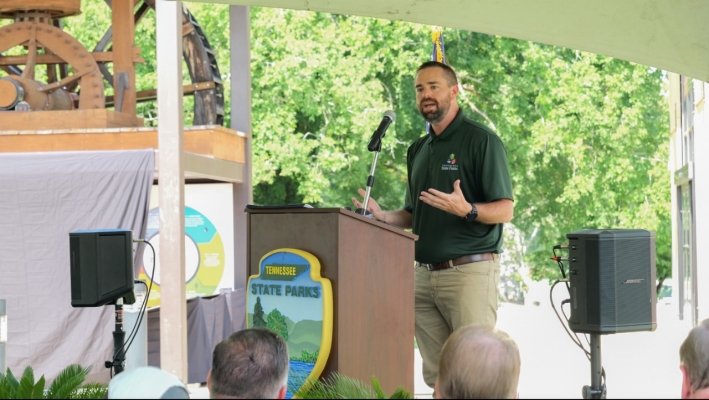
As the first person in this role, Ryan coordinates with teams across the Tennessee Department of Environment and Conservation (TDEC). He works with facilities, trails, archaeology, hospitality, mapping, grants, education, marketing, and park staff. His job is making sure accessibility isn’t just part of our state parks’ work – it’s central to it. “I coordinate, ensuring accessibility is not just part of every team’s job, but also to ensure that these teams are the champions of accessibility,” he says.
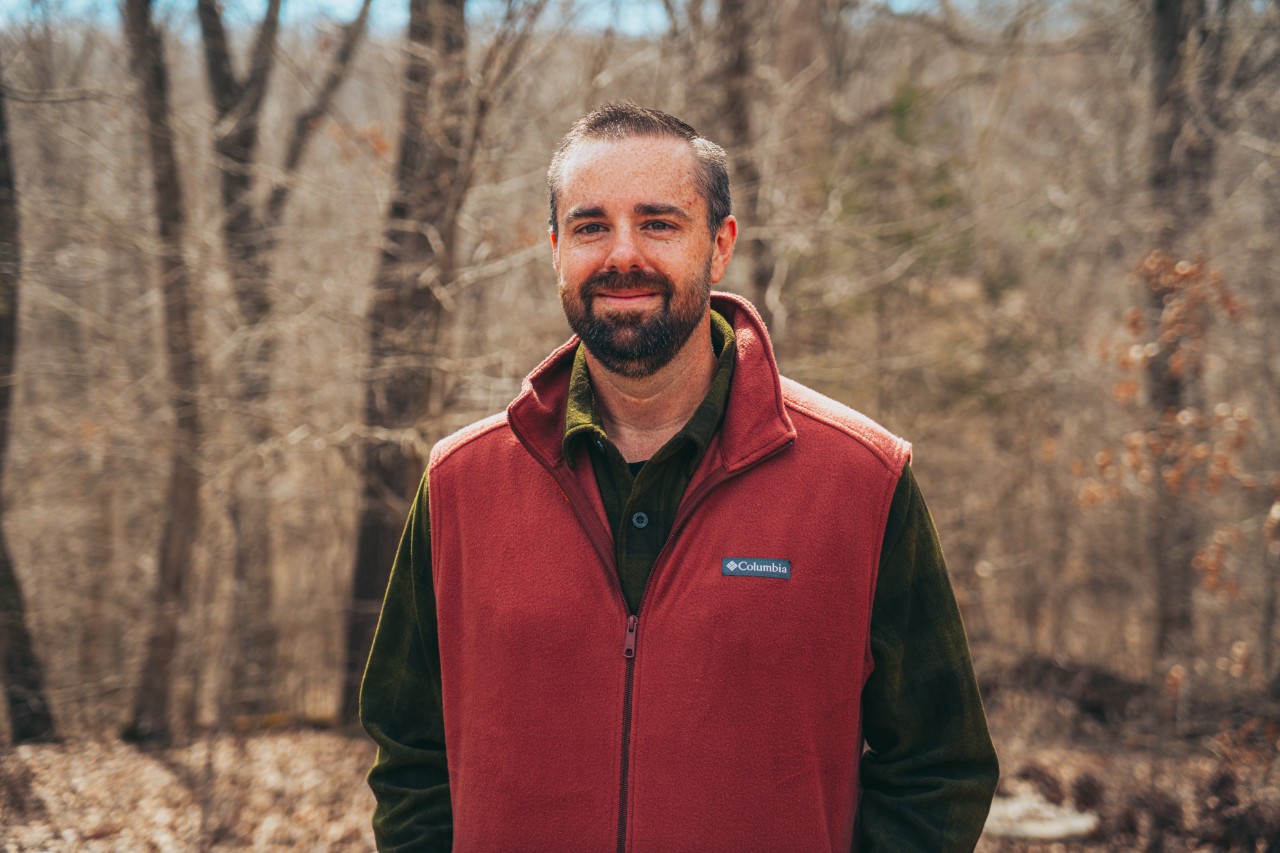
Real Changes Happening Now
The results are already visible across our state parks. Visitors can now find all-terrain wheelchairs, adult-sized changing tables, and universally accessible kayak and canoe launches at many parks in the state. These features exist because park teams take seriously their role in welcoming everyone. Ryan says his biggest challenge is keeping up with all the accessibility projects happening statewide.
“There are so many people, doing so many things every single day,” he says, “It’s a challenge making sure I don’t accidentally miss highlighting a project that someone has accomplished for enhancing accessibility.”
Park staff continue to surprise Ryan. “I’ve been blown away by how far folks will go to make every visitor really feel as though they genuinely belong in the parks,” he notes. “There’s a strong conviction that these parks belong to everyone, and that everyone should feel a strong sense of belonging in their park.”
The Transportation Challenge
Even the most accessible parks can’t solve every barrier, though. Ryan identifies transportation as the biggest obstacle people with disabilities face in being able to access outdoor recreation.
“We can have the most accessible state parks network in the nation, with the best accessibility features and trained park rangers to serve visitors, but if someone doesn’t have the ability to get from their home to the park [...] then we’ve still not addressed the biggest accessibility barrier,” he says. Tennessee State Parks can’t fix transportation alone, but they are still finding creative solutions.
Through partnerships like the Tennessee State Parks Conservancy, more students are visiting parks through their schools for education programs tied to their grade-level standards.
For more on Tennessee’s work to improve accessible transportation in our state, visit the Office of Mobility and Accessible Transportation.
Learning from Personal Experience
Ryan’s approach to accessibility stems from his own experience navigating the world as someone who is legally blind. His family supported his outdoor adventures after his vision loss, teaching him that “adventuring in the world is as important for someone with a disability as it is for someone without a disability.”
This personal understanding shapes the way he thinks about risk and dignity when it comes to outdoor recreation. “Being adventurous in the outdoors carries inherent risk. Hiking a trail, kayaking a river, or simply sitting under big, old oak tree carries a level of risk and danger to it,” he acknowledges.
“I believe that whatever level of outdoor adventure, despite the risk or danger, every individual deserves the dignity to pursue their adventure in an informed and responsible way.”
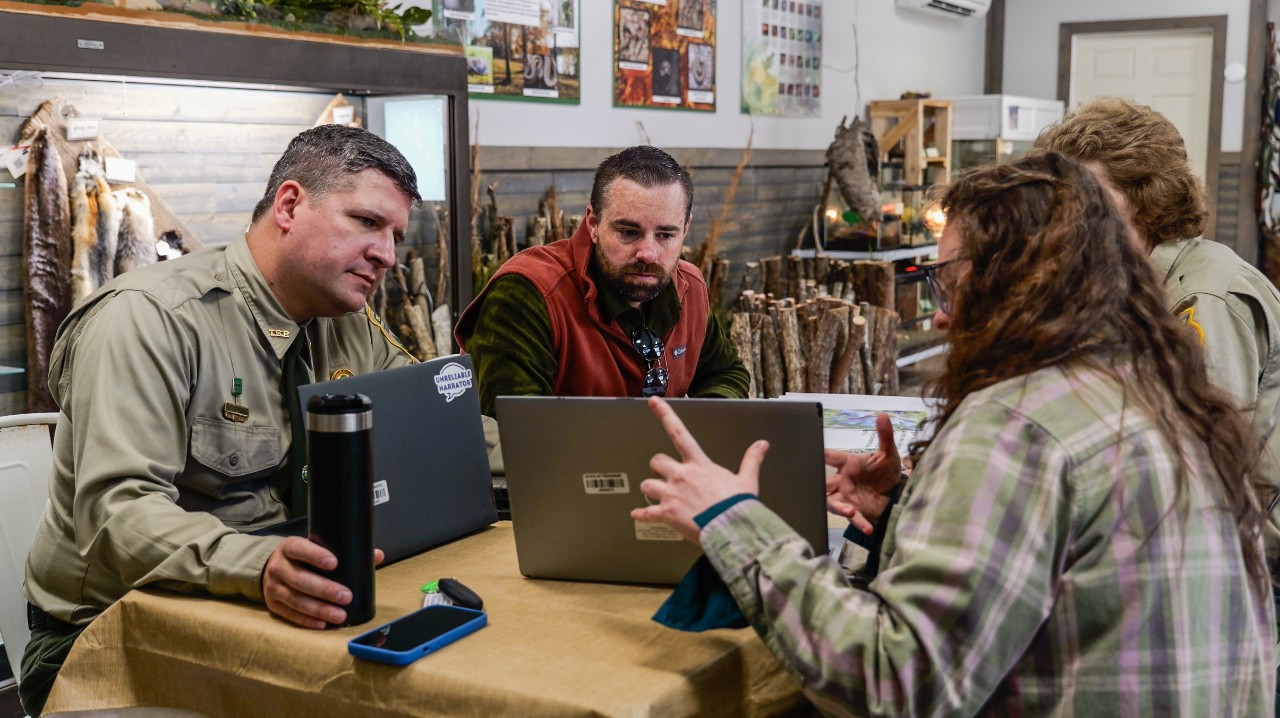
Building Excellence Through Leadership
When he’s not working directly on improving accessibility to Tennessee State Parks, you might find Ryan in this year’s class of our Council’s Leadership Academy for Excellence in Disability Services (LAEDS). The program connects and trains state employees from different roles who share a commitment to better serving people with disabilities. His key takeaway from the program so far?
“The solutions to the challenges we face in disability services are found in the lived experiences of those that experience those challenges.” Excellence in disability services, he says, starts with “seeing and recognizing the individuals as the leader of themselves and their life’s goals.”
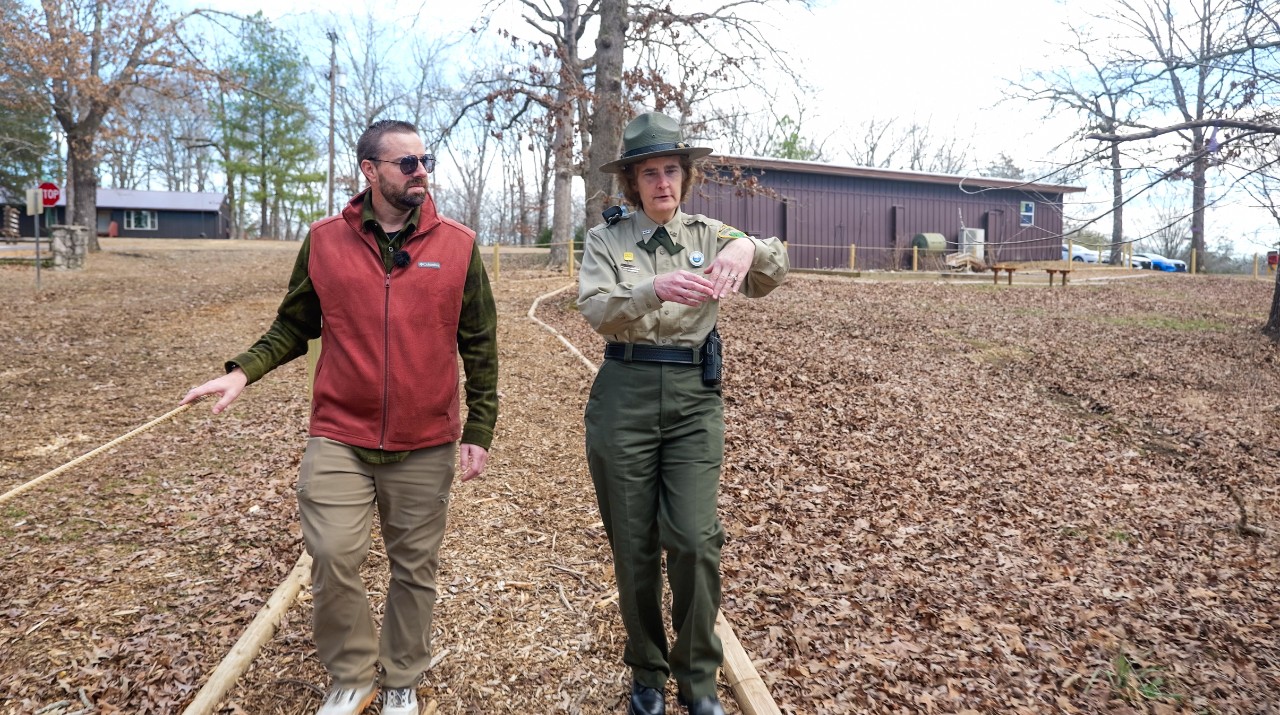
In Pursuit of Public Service
Ryan has spent much of his career in state government because he feels that public services connect him to everyone in Tennessee. “Working on behalf of the good for others, those you’ll never know, enables me to have a strong sense of duty for the betterment of my fellow person,” he explains. His inspiration comes from what might seem an unexpected source: kids and other people who consistently push their limits.
“Kids inspire me because they audaciously transcend boundaries they don’t know they are supposed to have,” he says. He’s equally drawn to people who “refuse to accept successful completion of achievements as the final goal,” but are “pursuing that which they don’t believe they are capable of reaching but pursue it anyway. Those people, those kids, they inspire me.”
A Call to Action for Young People
For young people with disabilities considering their career paths, Ryan offers direct advice: “Pursue your passions, regardless of what it requires of you. Be willing to sacrifice everything to achieve what you want to achieve.” He encourages flexibility as interests and goals evolve but emphasizes staying true to your inner calling: “Continuously seek to work doing that which you know, deep within you, you must do.” And one more practical tip: “Try to make a bunch of money while you do it,” he adds.
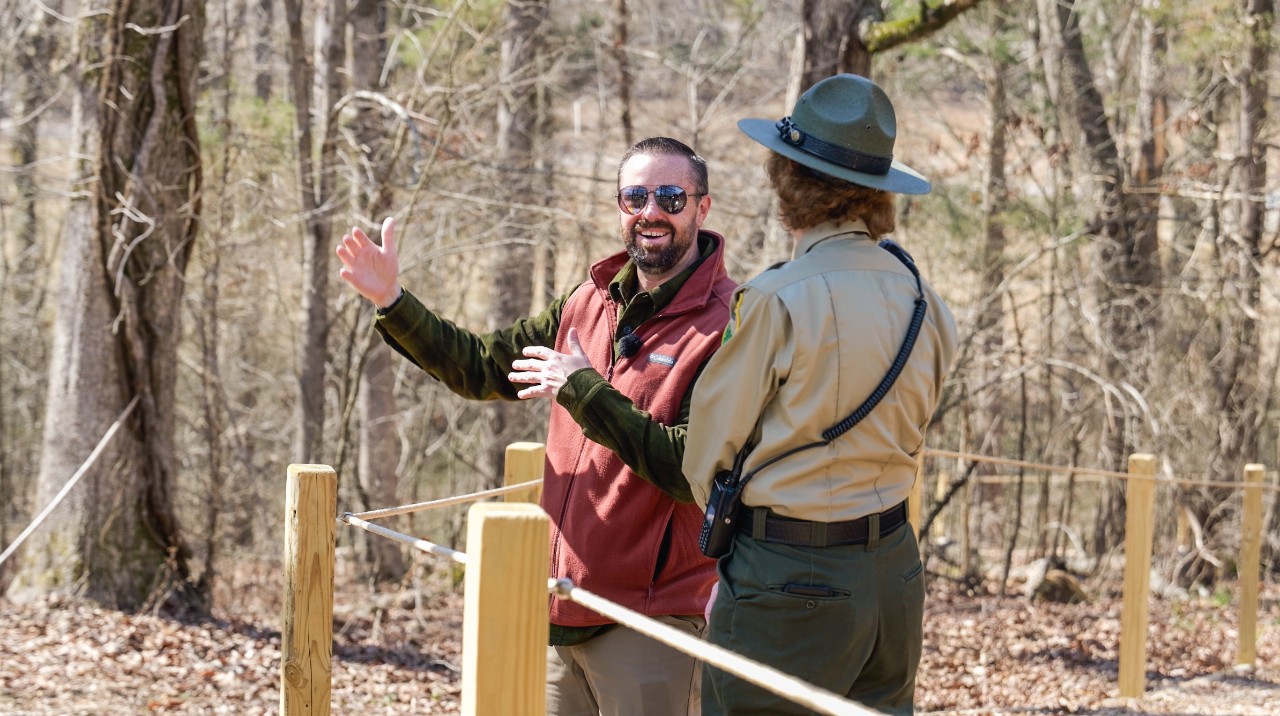
Tennessee’s Outdoor Future
Tennessee’s commitment to accessibility in state parks represents more than policy – it’s about recognizing that natural spaces belong to everyone. Through Ryan’s coordination and the dedication of park staff statewide, Tennessee is building bridges between its natural resources and people who might otherwise face barriers to experiencing them. With continued focus on removing barriers and creating welcoming spaces, Tennessee state parks are positioning themselves as a national model for accessibility in outdoor recreation.
Hear Ryan talk about his new role in this short video from the TN Department of Environment and Conservation.